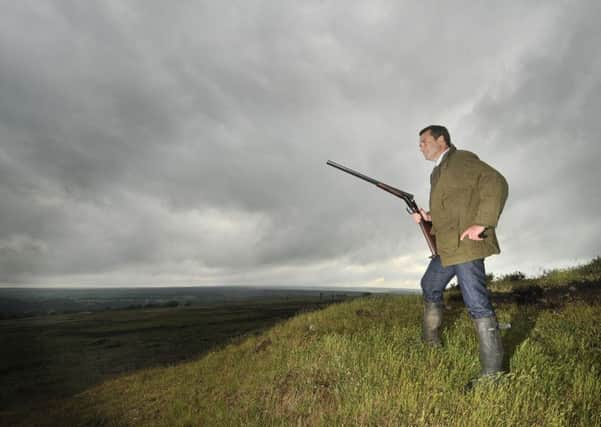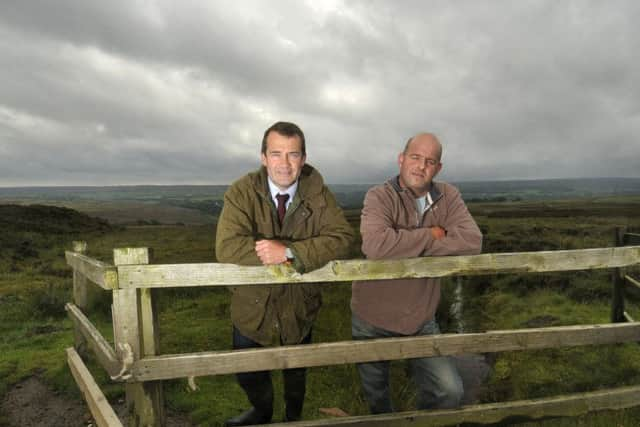Do shoots strike the right balance?


The pair are currently deeply concerned over parts of the North York Moors no longer being the free areas they were in their youth, and they believe over-zealous gamekeeping regimes on country estates are destroying wildlife habitat for many other species in order that grouse can be shot in huge driven shoots.
Far from being labelled ‘tree huggers’ and also far from being part of the anti-shooting brigade Richard is a country pursuits man. He just feels that some gamekeepers are taking things too far and that some estate owners are pushing the envelope whereby they may be receiving farm-based stewardship monies that he believes are only going towards furthering growth of their grouse shooting businesses.
Advertisement
Hide AdAdvertisement
Hide AdRichard contacted Country Week after having read our story on gamekeepers several weeks ago as he felt compelled to give what he sees as another side to their words and actions.


“I have always been a shooter. I’ve shot pheasants and rabbits and I am certainly not against gamekeepers, I have friends who are in the profession. From my point of view they have always done a job and you know why they are doing it. That’s all fine, but now on some shoots they are just over stepping the mark.
“The practices on some estates have become so intense that nothing else can exist other than grouse, or anything that doesn’t directly affect the grouse.
“At present I’m shooting more rabbits than ever because they are around in such big numbers. The reason for that is due to the animals that control the rabbit population such as stoats and weasels not being around anymore or indeed anything that could cause a predatory problem for the grouse. Gamekeepers aren’t bothered about rabbits as they don’t affect the grouse.
Advertisement
Hide AdAdvertisement
Hide Ad“We are losing the birds of prey like the goshawks, marsh harriers and hen harriers. It’s a commercial thing to the detriment of everything else. Birds of prey and most moorland birds like to nest in long heather and there is now very little of that.


“The grouse like the small shoots. That’s why on certain moors the heather is short over several acres. If you have short heather it is actively discouraging birds of prey.
“Sometimes you hear just one shot ringing out around the countryside. It sends a shiver down your spine as that’s not shooters in the sky. Shooters don’t use just one shot. It’s when something has been shot sat in a nest somewhere to get rid of it in favour of the grouse.
“It’s not just birds that are going, it’s also what is happening to the moorlands. In recent years they have been ditched, drained and burned. While burning is one of the ways in which regrowth is brought about there are regulations over how much is burned each year. My feeling is that more is being burned on certain estates than should be the case.
Advertisement
Hide AdAdvertisement
Hide Ad“Ditches have been brought in as ways of protecting the grouse and traps are on them to catch stoats and other animals moving across the moor. In some areas there are now ditches every 100 yards or so with what’s called a fen trap on the bridges across. It is another way of making sure nothing else survives apart from thousands of grouse, but there is another problem in putting in more ditches. They all run in to Costa Beck in Pickering that eventually runs into the River Derwent and from there into the River Humber. It would have taken months for that water to get down previously, now two hours later it is in Pickering and that is what I believe is one of the reasons behind flooding.
“It is also washing away the fossil fuels from the peat and weakening the moorland.”
Richard views reduction in public access to moors where there are grouse with bewilderment.
“When we were kids anyone could go on the moors, we would go out for a drive on a Sunday and my granddad would pull off the road to one of the places where maybe as many as five or six cars could park up, admire the view, get out and walk or play. Increasingly those main pull off points are being barriered off.
Advertisement
Hide AdAdvertisement
Hide Ad“There are also now signs saying all dogs must be kept on leads and there is CCTV in operation. The thing is you are on top of the moor; you look around and ask what is being protected? I just don’t think the public is wanted and that is partly because three minutes off road you might come across all the traps in ditches.
“Don’t get me wrong I’m not against grouse shooting. I am also fully aware that grouse moors are owned and run by estates and it is all part of what they do. I don’t have a problem with that. What I am opposed to is the mass slaughter of driven game shoots such as one on the moors last year when there was talk of 1,500 grouse shot on one drive.
“Taxpayers’ money is being used in the name of conservation when really it is just subsidising mass shoots. I have never been among the privileged to shoot grouse as you have to have money to be a part of the scene, but I would be embarrassed to be part of such drives. I see shooting as a bit like fishing; if you don’t catch or shoot anything at least you have had a good day out in the countryside. I think we’re very lucky to live in a fantastic part of the world.”
Stephen says: “My feeling is that the modern gamekeeper is merely a pawn in what is big business. Richard and I aren’t the only ones who feel this way. We’re hoping to put together a public meeting to raise greater awareness later this year at a meeting in Goathland.”